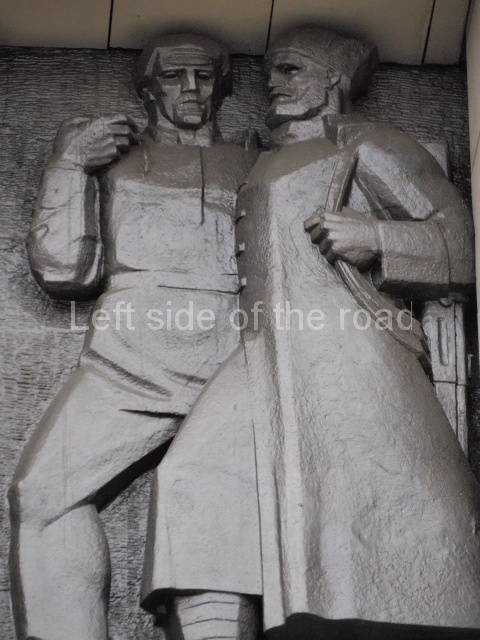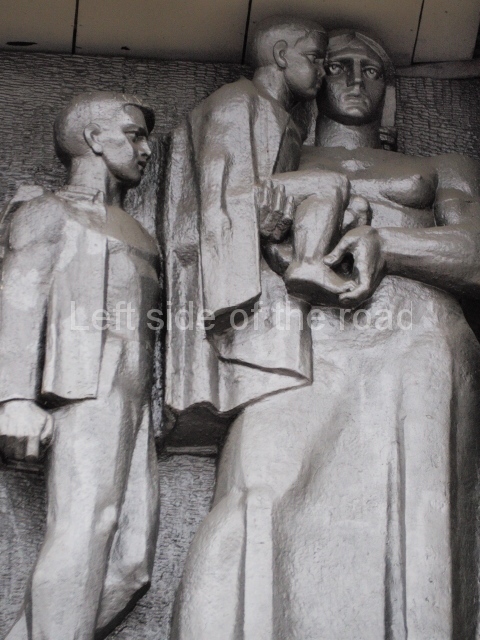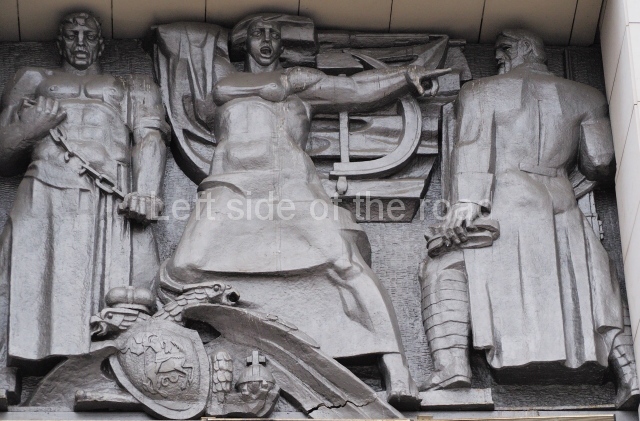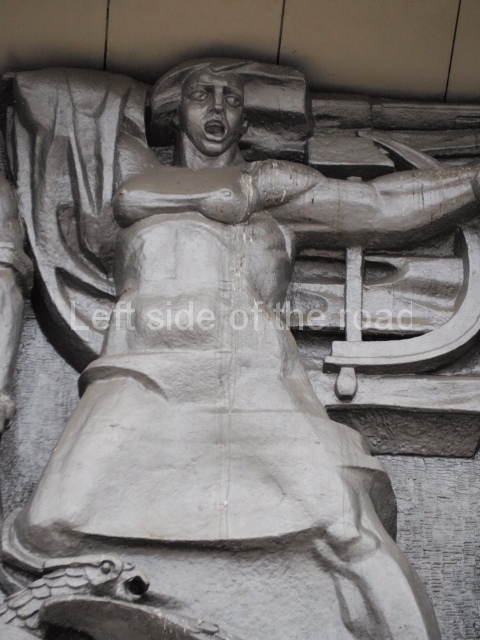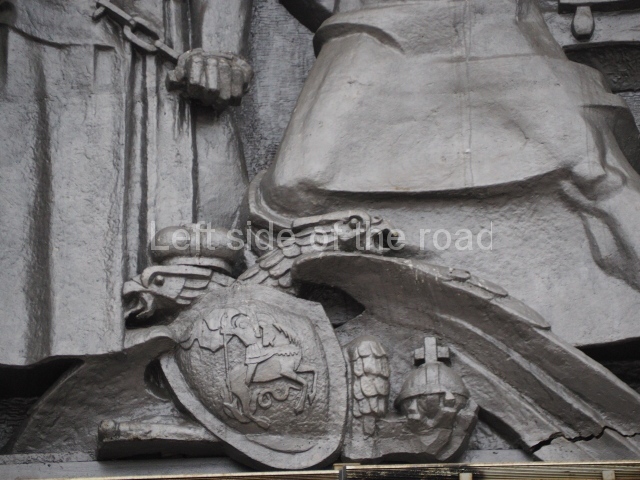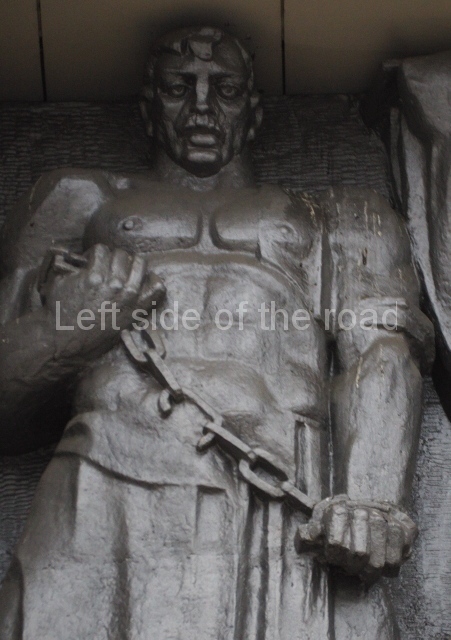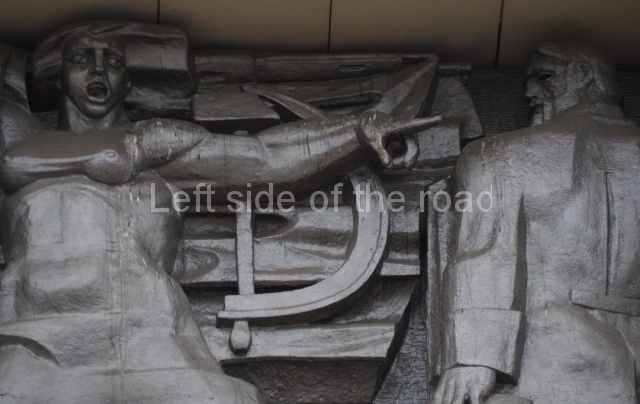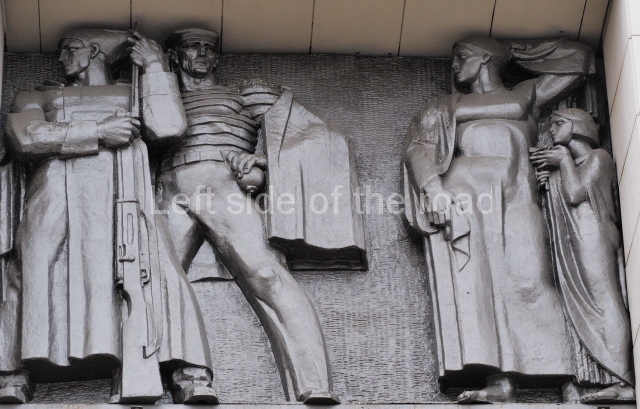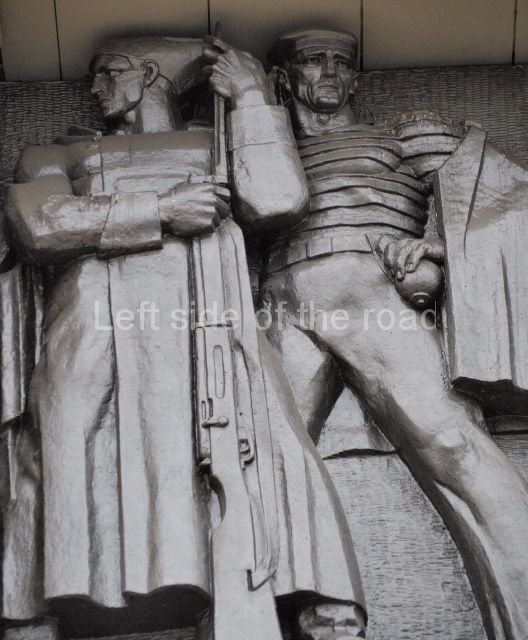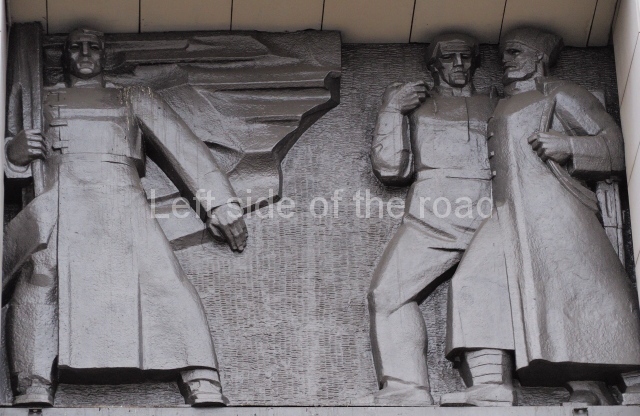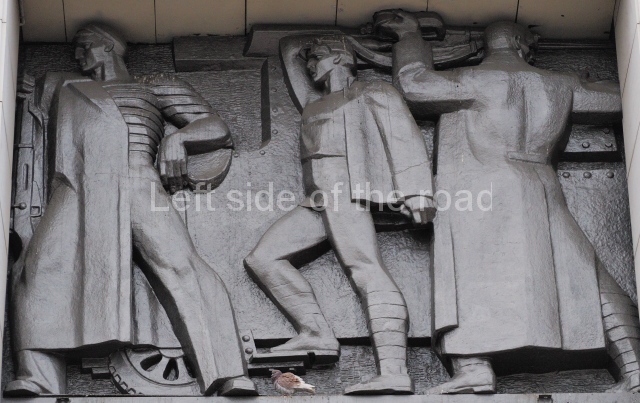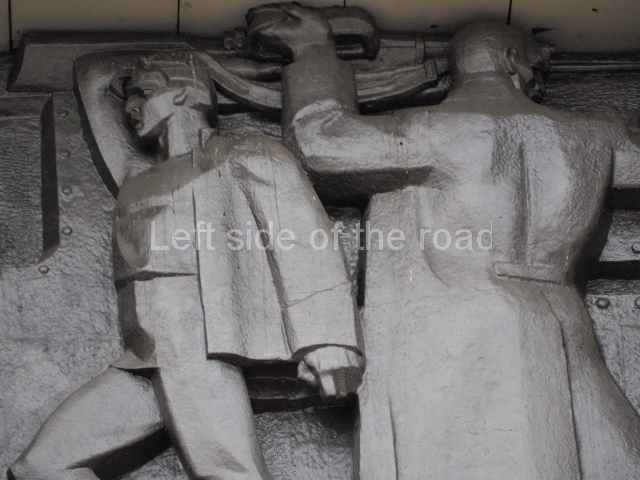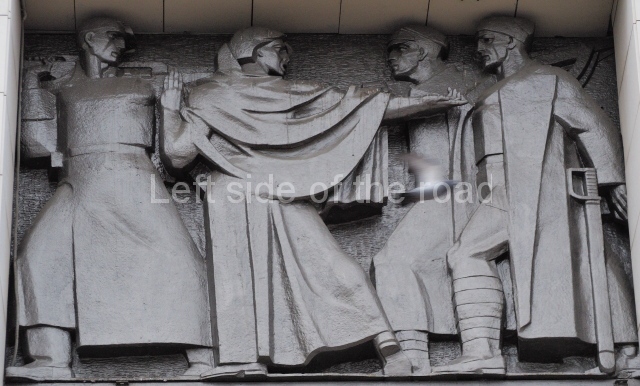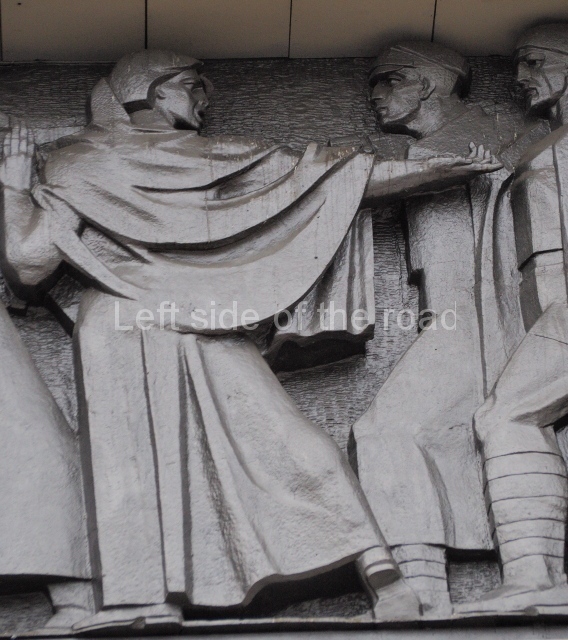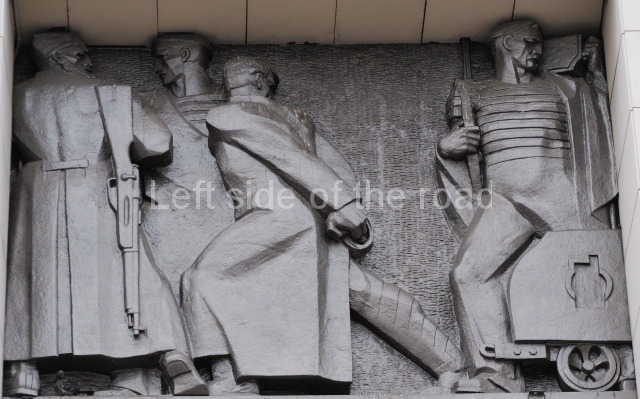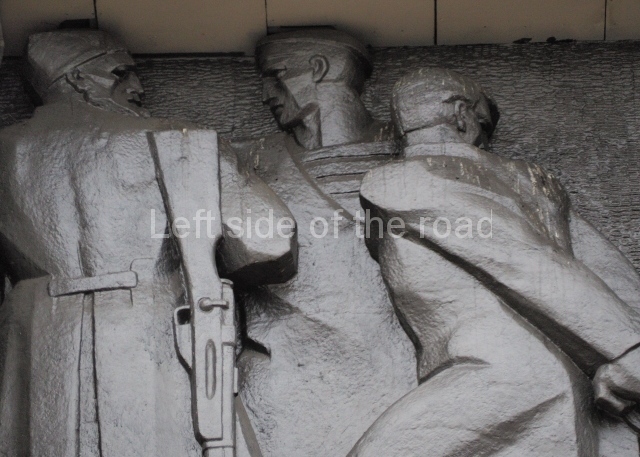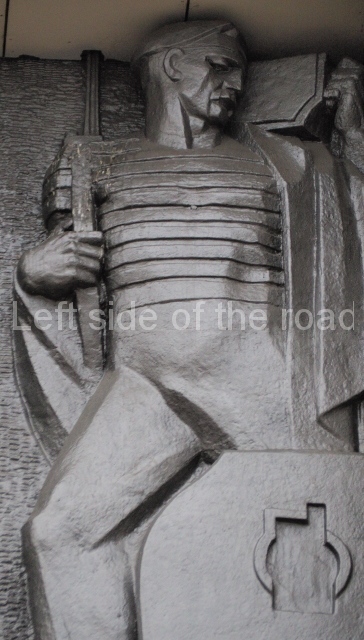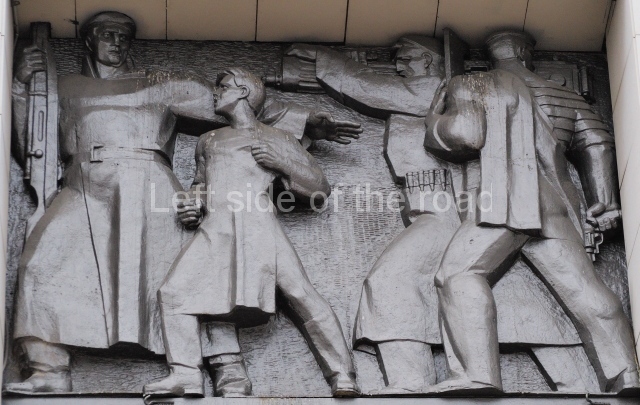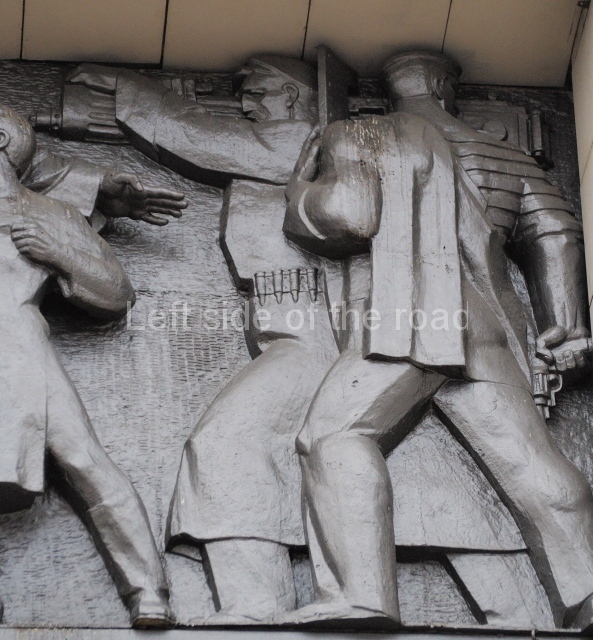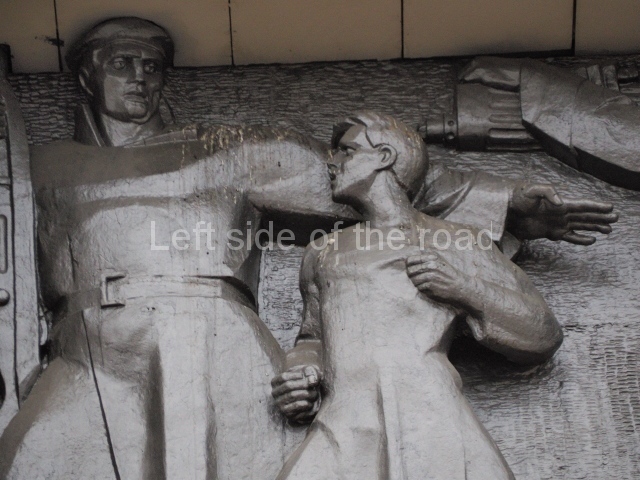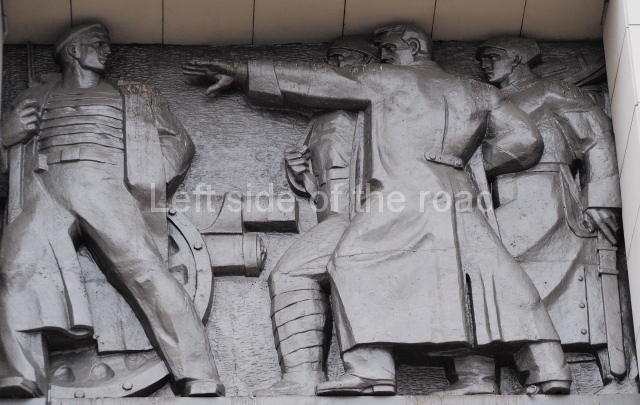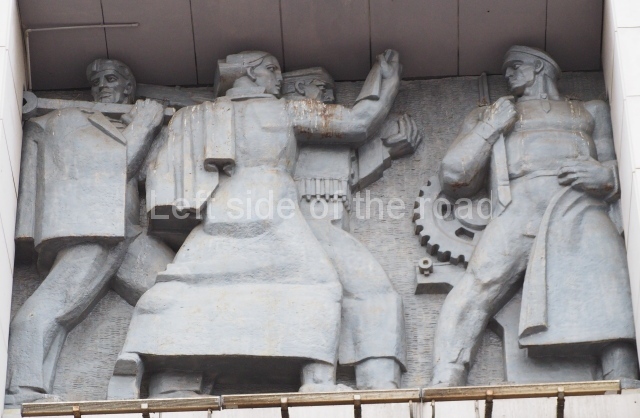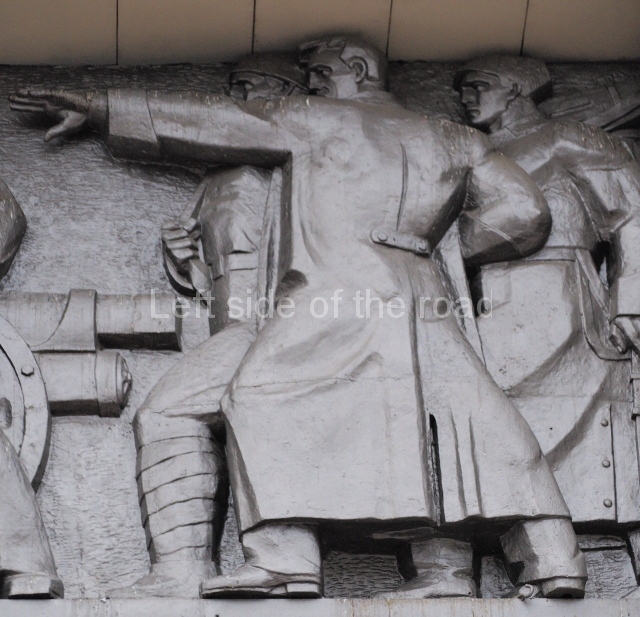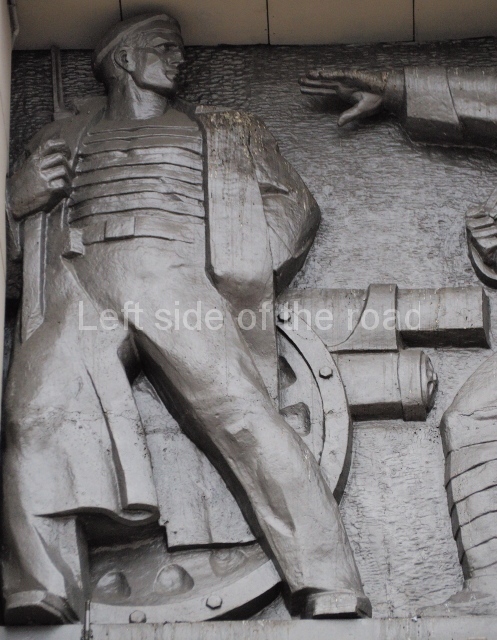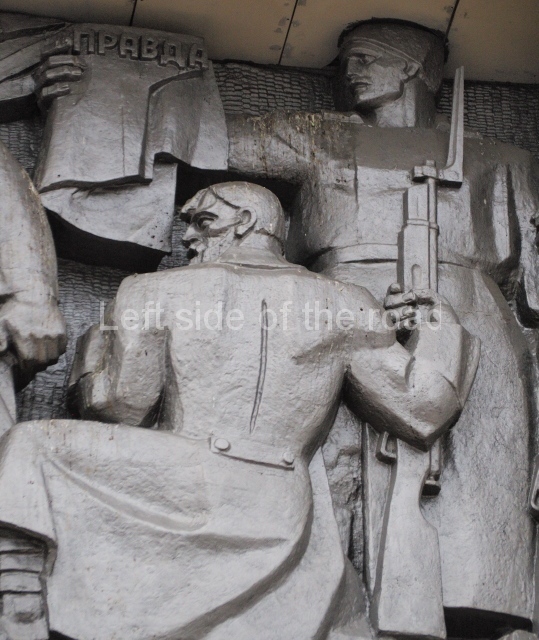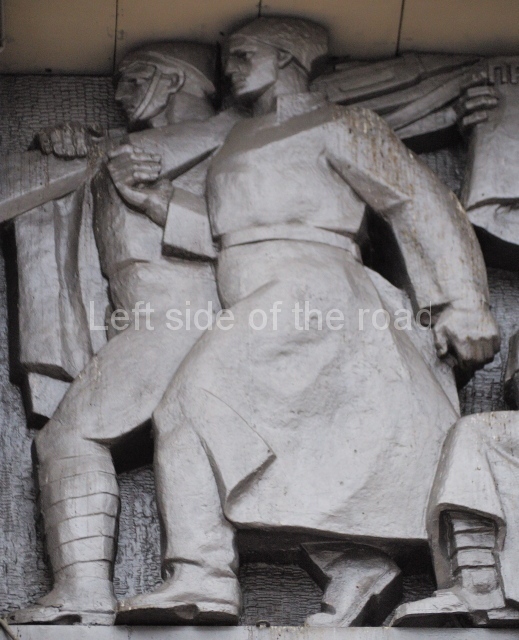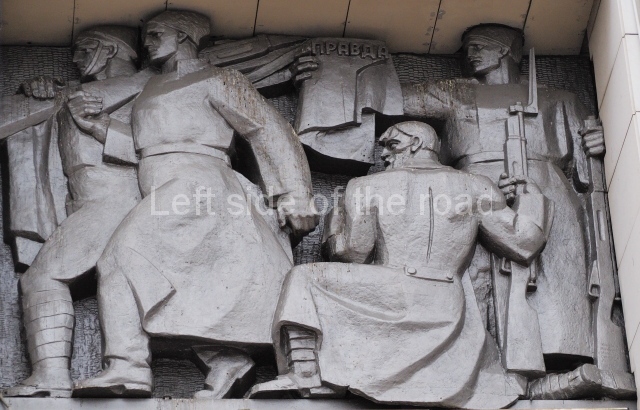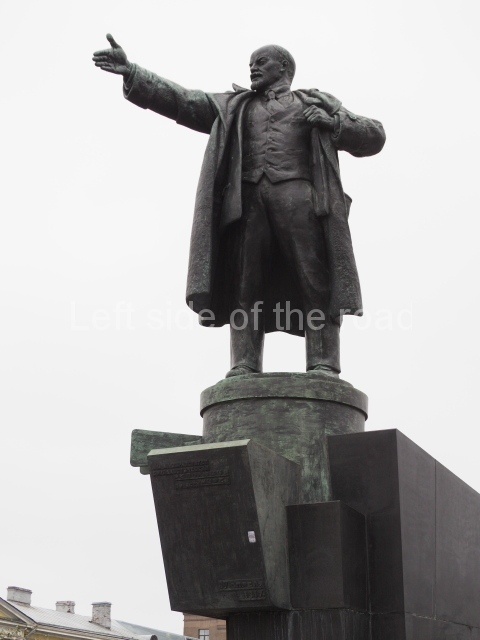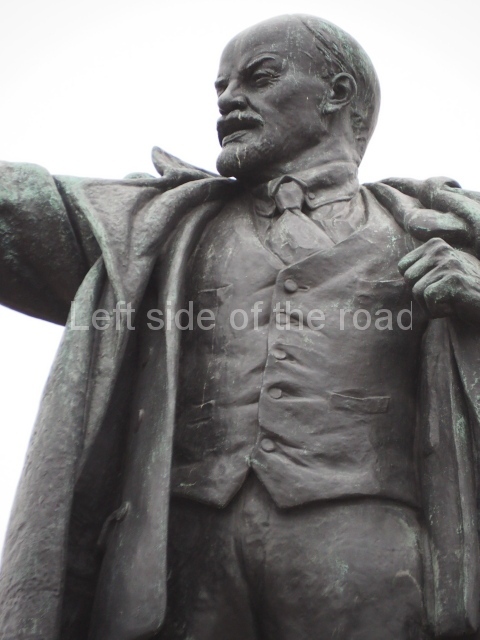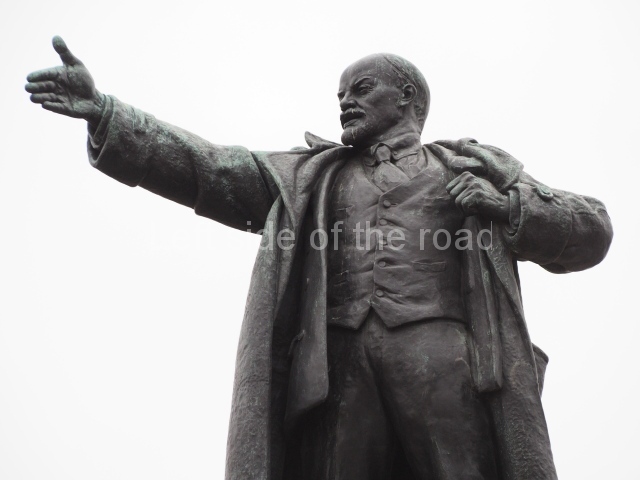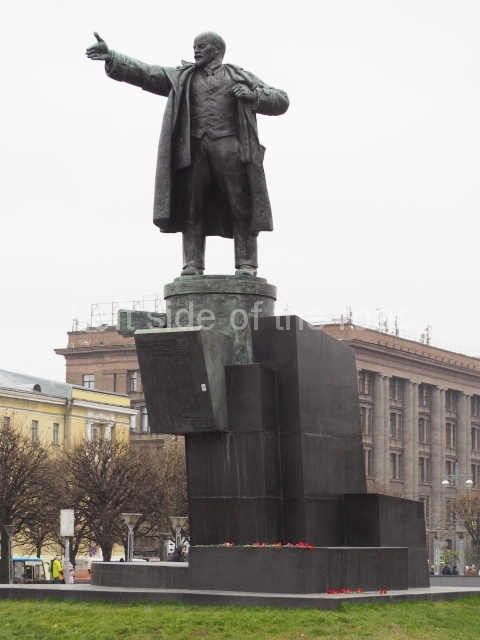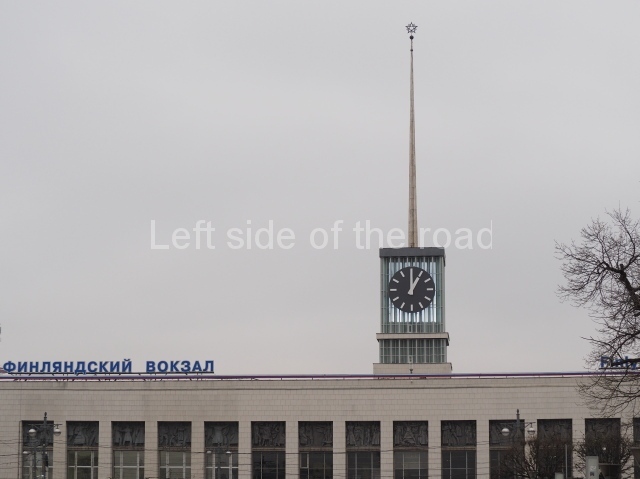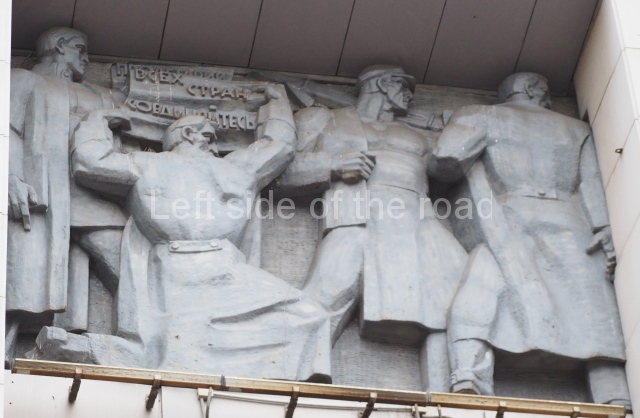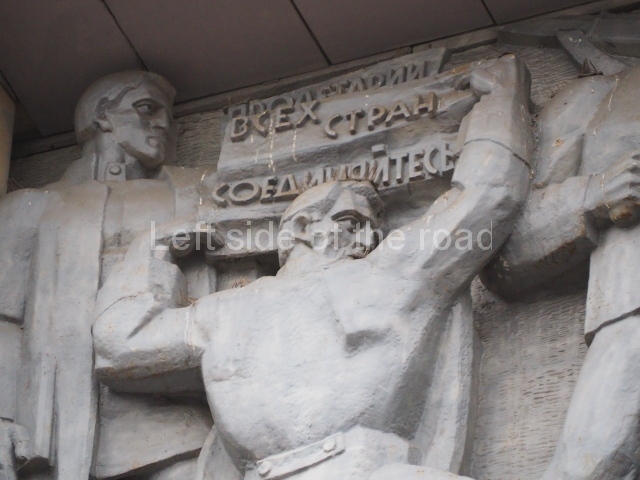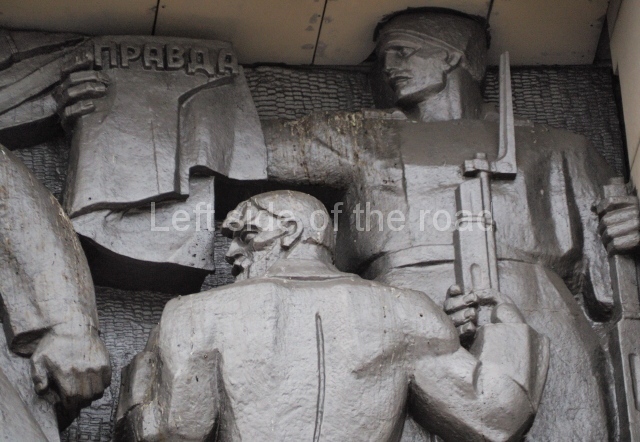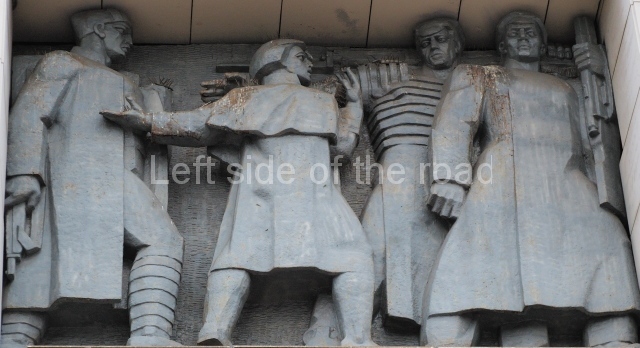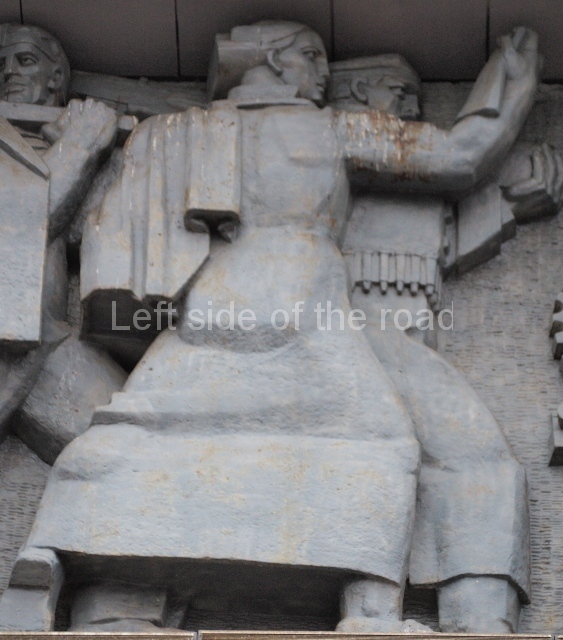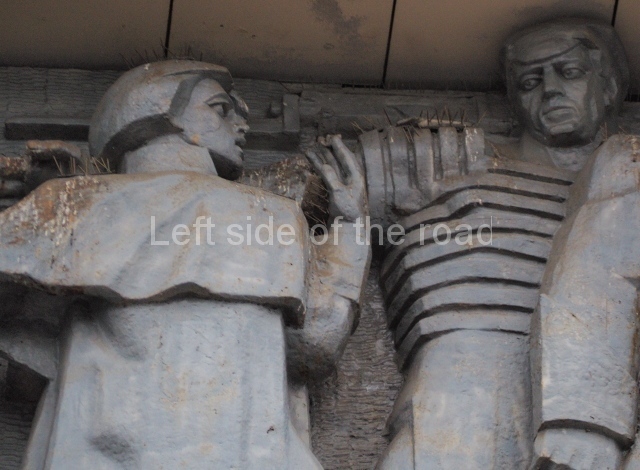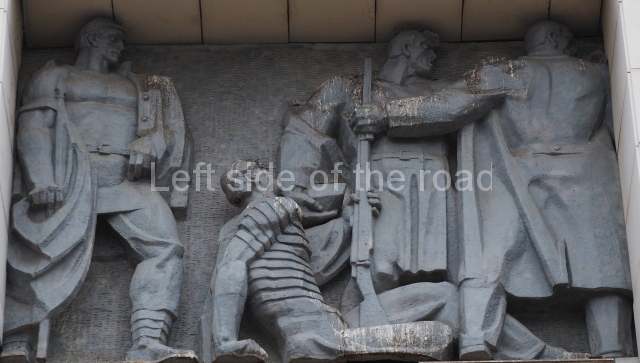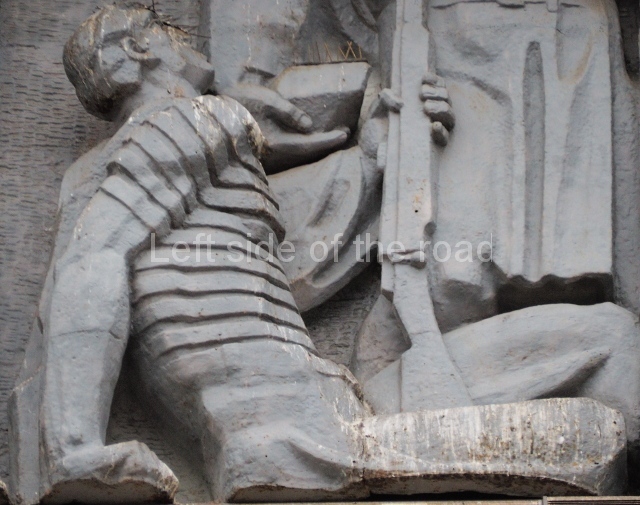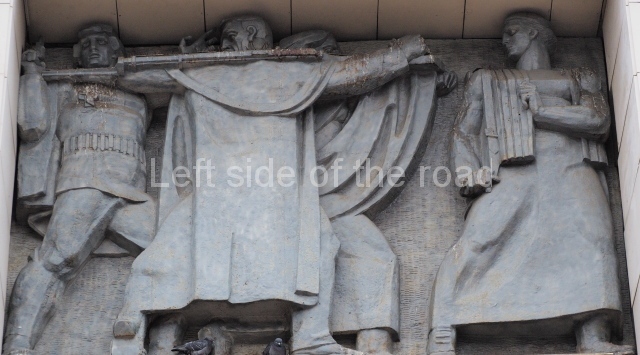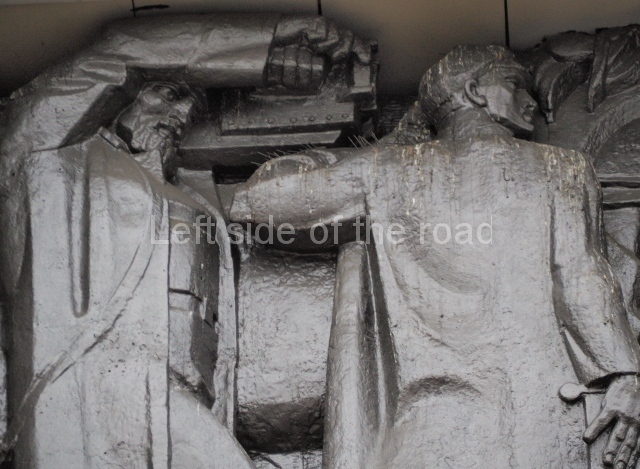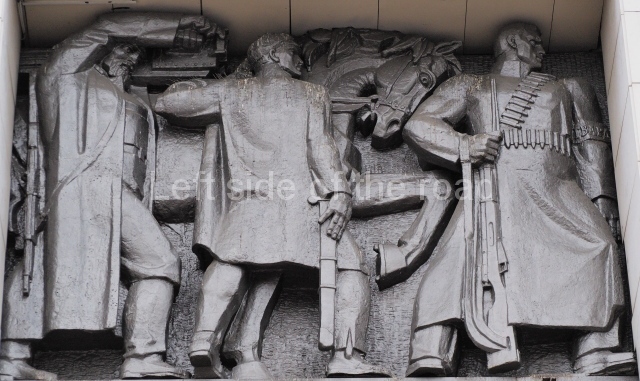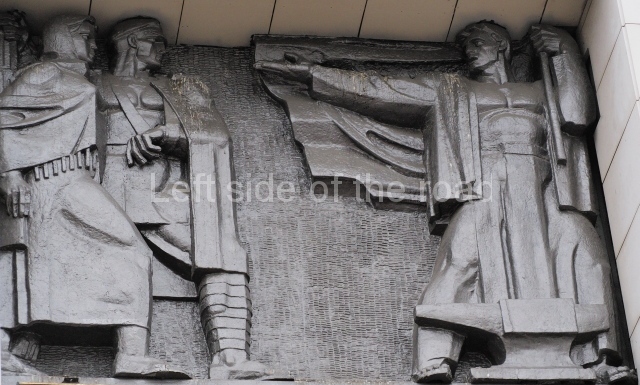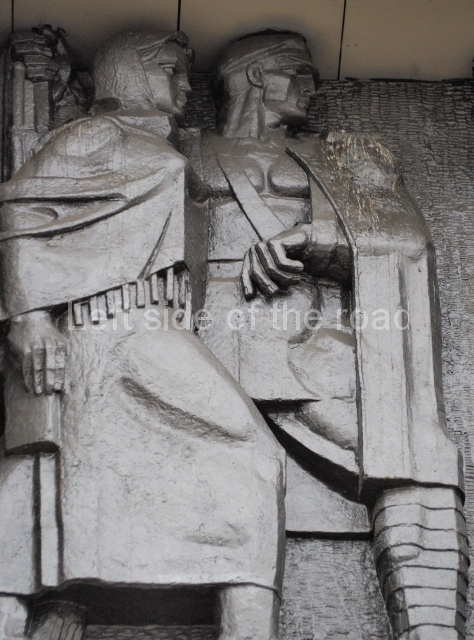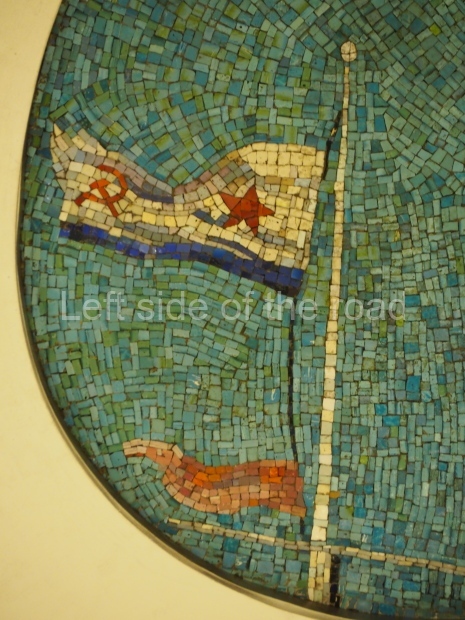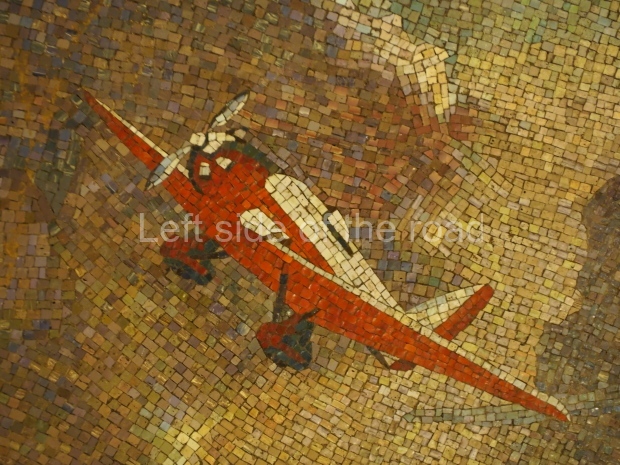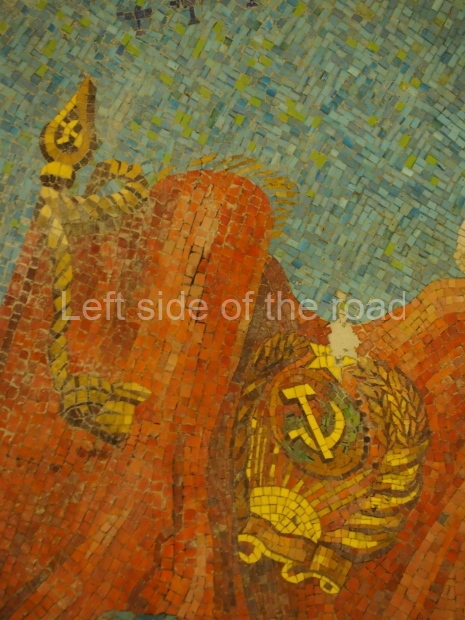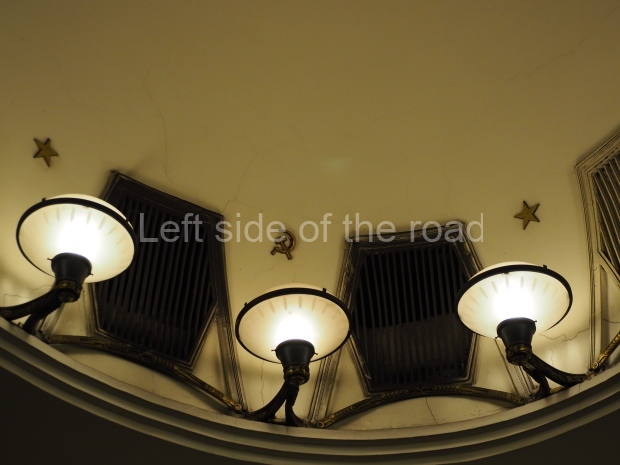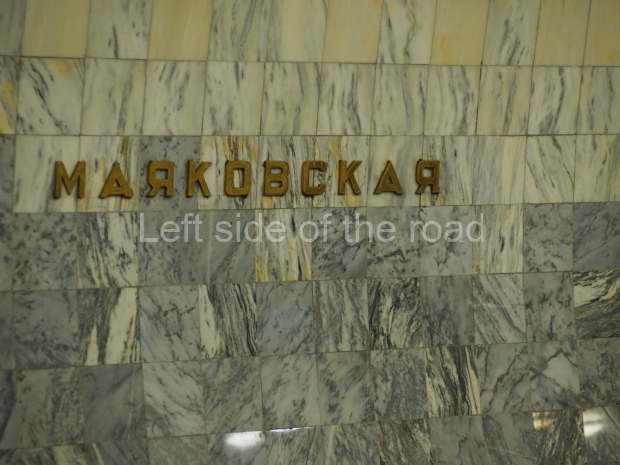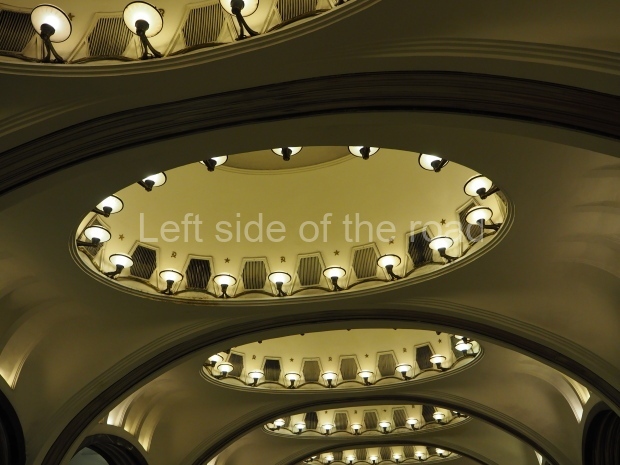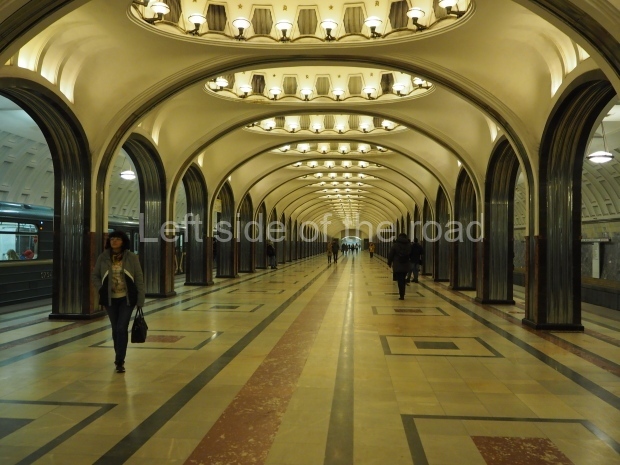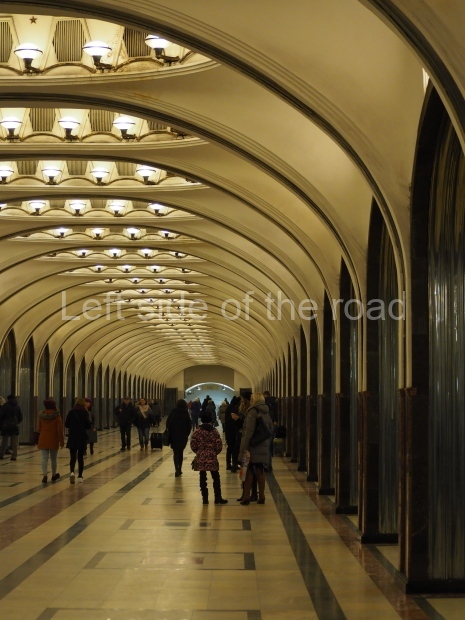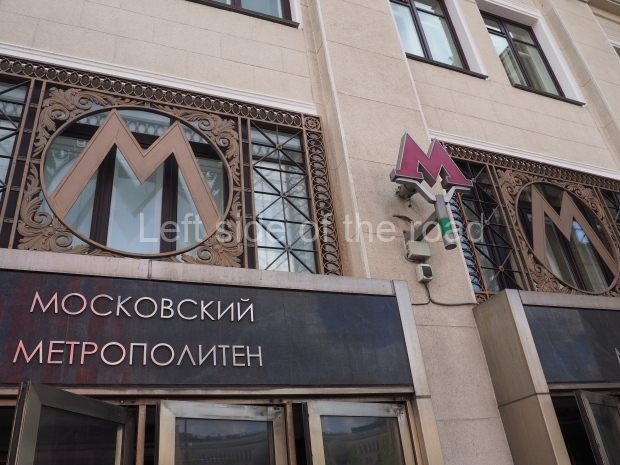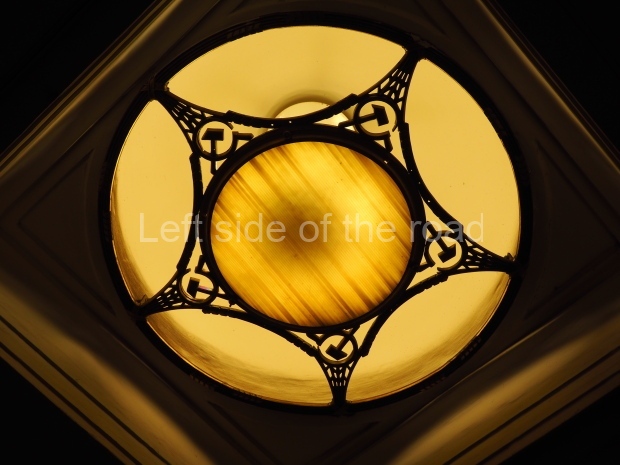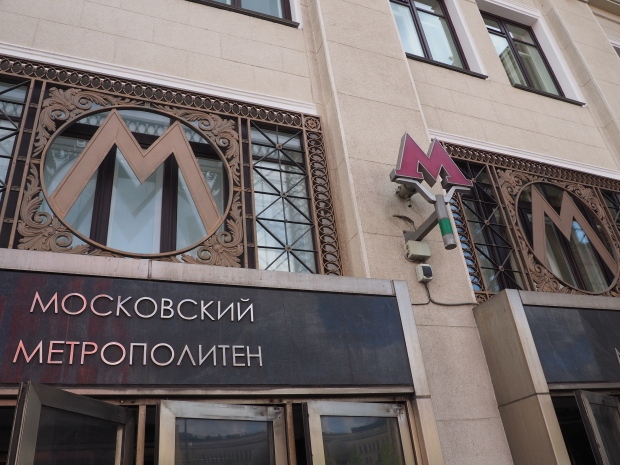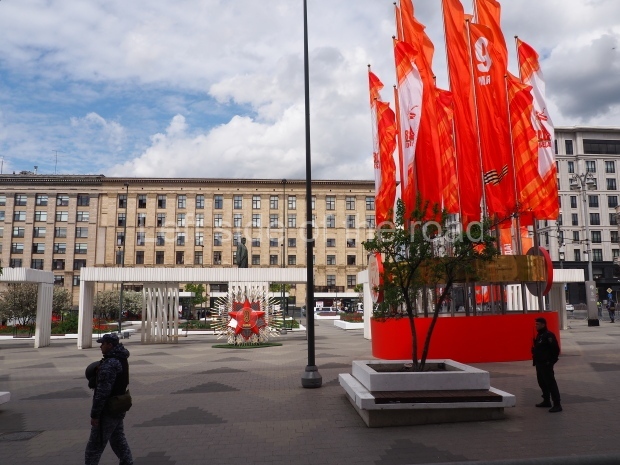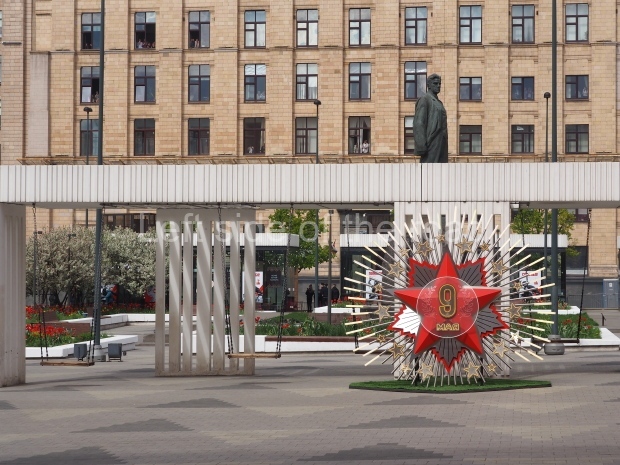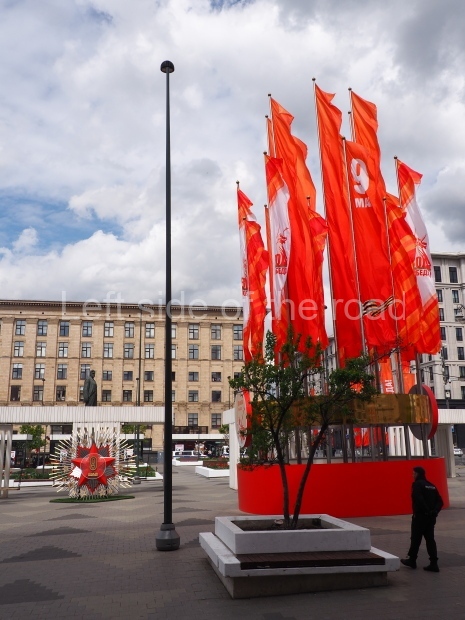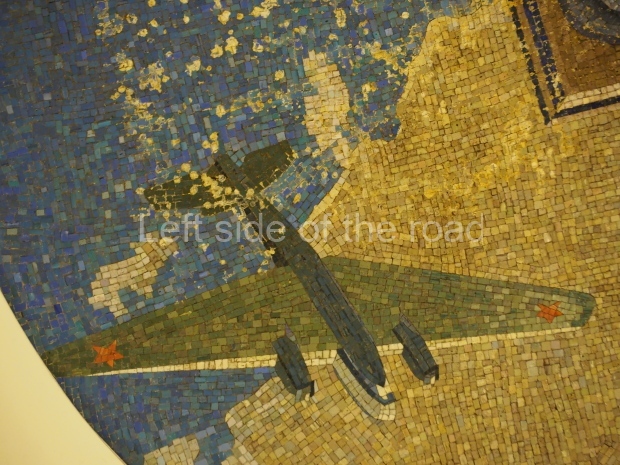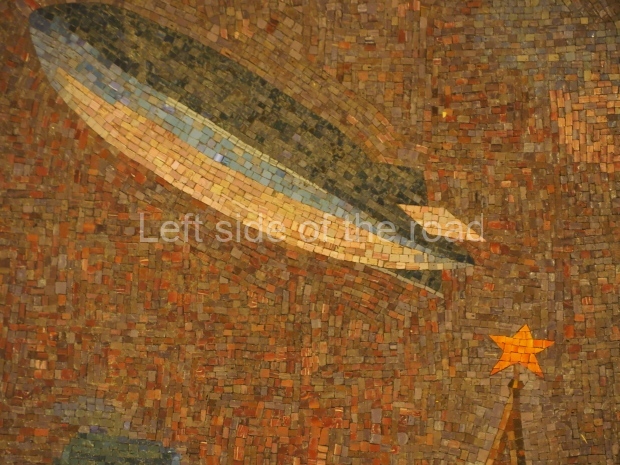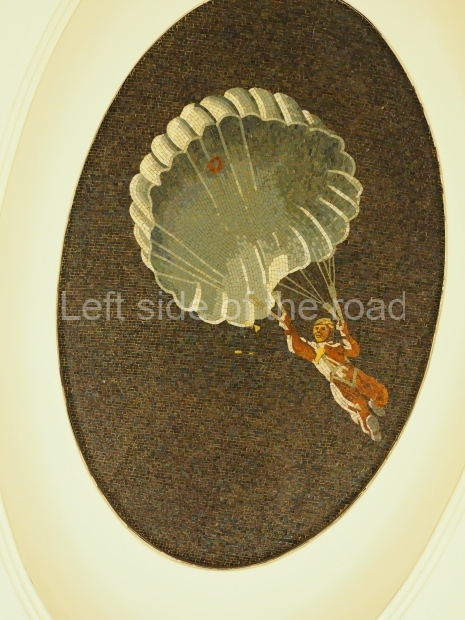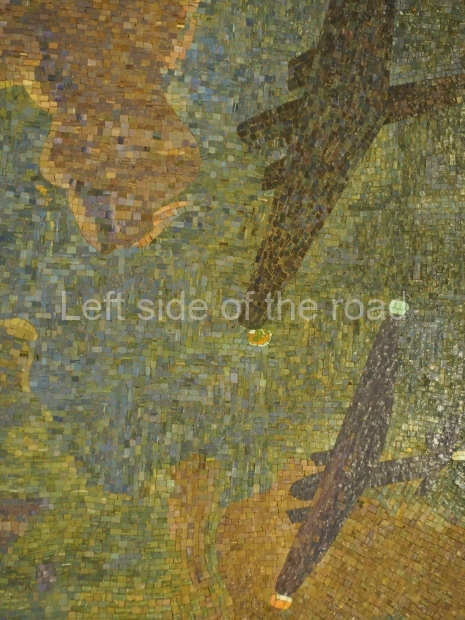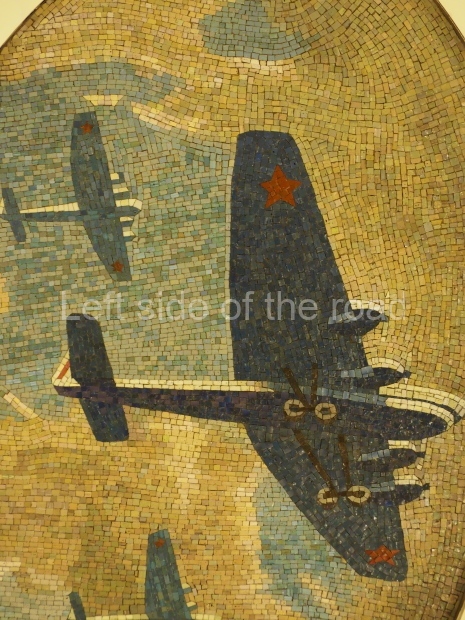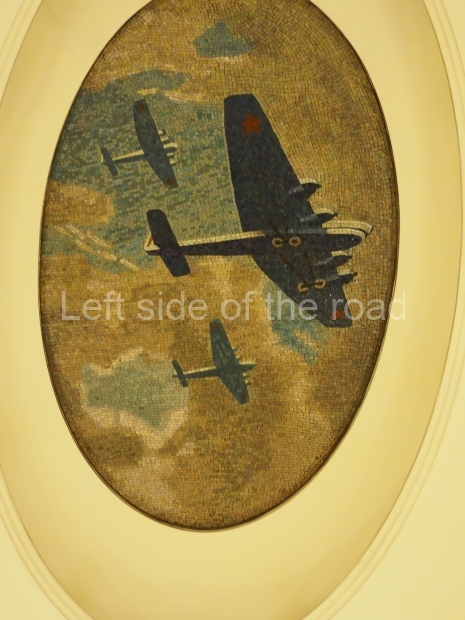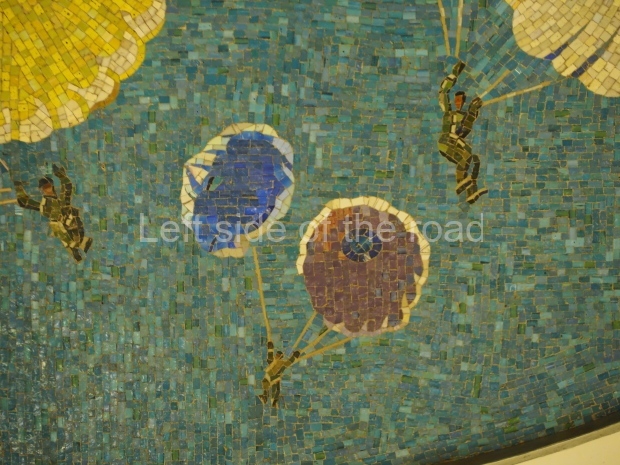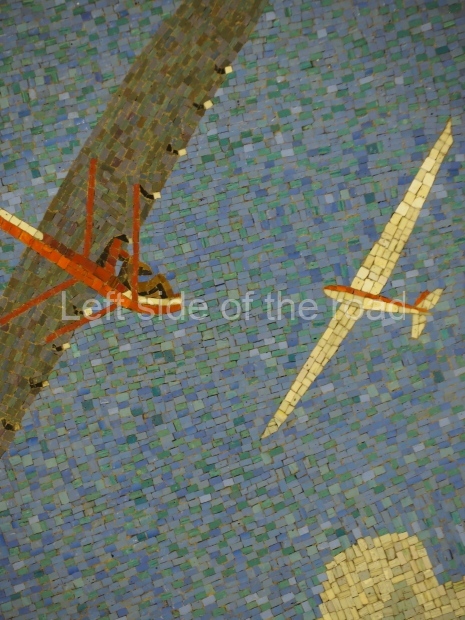More on the ‘Revolutionary Year’
16th April 1917 – VI Lenin arrives at the Finland Station, Petrograd
On 16th April (3rd April Old Style) 1917 Vladimir Ilyich Lenin arrived from Europe at the Finland Station in Petrograd. If a specific date and occasion can be said to have set in train the events that would culminate in the October Revolution (on 7th November New Style) then Comrade’s Lenin arrival at Finlandskaya was it. The Bolsheviks had started to lose the plot and what was needed was Lenin’s intervention to force the Party to focus on the possibility (and necessity) of the revolutionary seizure of power.
To commemorate that event we reproduce the report of it that was published in the History of the CPSU, published 22 years later.
This is also an opportunity to be able to present images of the sculptures that were installed on the façade of the new, rebuilt station building of the late 1950s. Although from the Revisionist period of the Soviet Union these sculptures still retain elements of the ‘new’ art form that was Socialist realism. That slide show is at the end of the post as well as a few examples in the body.
From the History of the CPSC(B) – Short Course.
When the Party began its legal existence, differences within its ranks became apparent. Kamenev and several workers of the Moscow organization, for example, Rykov, Bubnov and Nogin, held a semi-Menshevik position of conditionally supporting the Provisional Government and the policy of the partisans of the war. Stalin, who had just returned from exile, Molotov and others, together with the majority of the Party, upheld a policy of no-confidence in the Provisional Government, opposed the partisans of the war, and called for an active struggle for peace, a struggle against the imperialist war. Some of the Party workers vacillated, which was a manifestation of their political backwardness, a consequence of long years of imprisonment or exile.
The absence of the leader of the Party, Lenin, was felt.
On April 3 (16), 1917, after a long period of exile, Lenin returned to Russia.
Lenin’s arrival was of tremendous importance to the Party and the revolution.
While still in Switzerland, Lenin, upon receiving the first news of the revolution, had written his ‘Letters From Afar’ to the Party and to the working class of Russia, in which he said:
‘Workers, you have displayed marvels of proletarian heroism, the heroism of the people, in the civil war against tsardom. You must now display marvels of organization, organization of the proletariat and of the whole people, in order to prepare the way for your victory in the second stage of the revolution.’ (Lenin, Selected Works, Eng. ed., Vol. VI, p. 11.)
Lenin arrived in Petrograd on the night of April 3. Thousands of workers, soldiers and sailors assembled at the Finland Railway Station and in the station square to welcome him. Their enthusiasm as Lenin alighted from the train was indescribable. They lifted their leader shoulder high and carried him to the main waiting room of the station. There the Mensheviks Chkheidze and Skobelev launched into speeches of ‘welcome’ on behalf of the Petrograd Soviet, in which they ‘expressed the hope’ that they and Lenin would find a ‘common language.’ But Lenin did not stop to listen; sweeping past them, he went out to the masses of workers and soldiers. Mounting an armoured car, he delivered his famous speech in which he called upon the masses to fight for the victory of the Socialist revolution. ‘Long live the Socialist revolution!’ were the words with which Lenin concluded this first speech after long years of exile.
Back in Russia, Lenin flung himself vigorously into revolutionary work. On the morrow of his arrival he delivered a report on the subject of the war and the revolution at a meeting of Bolsheviks, and then repeated the theses of this report at a meeting attended by Mensheviks as well as Bolsheviks.
These were Lenin’s famous April Theses (The Tasks of the Proletariat in the Present Revolution (The April Theses), VI Lenin, Collected Works, Volume 24, pp19-26.) which provided the Party and the proletariat with a clear revolutionary line for the transition from the bourgeois to the Socialist revolution.
Lenin’s theses were of immense significance to the revolution and to the subsequent work of the Party. The revolution was a momentous turn in the life of the country. In the new conditions of the struggle that followed the overthrow of tsardom, the Party needed a new orientation to advance boldly and confidently along the new road. Lenin’s theses gave the Party this orientation.
Lenin’s April Theses laid down for the Party a brilliant plan of struggle for the transition from the bourgeois-democratic to the Socialist revolution, from the first stage of the revolution to the second stage – the stage of the Socialist revolution. The whole history of the Party had prepared it for this great task. As far back as 1905, Lenin had said in his pamphlet, Two Tactics of Social-Democracy in the Democratic Revolution, that after the overthrow of tsardom the proletariat would proceed to bring about the Socialist revolution. The new thing in the theses was that they gave a concrete, theoretically grounded plan for the initial stage of the transition to the Socialist revolution.
The transitional steps in the economic field were: nationalization of all the land and confiscation of the landed estates, amalgamation of all the banks into one national bank to be under the control of the Soviet of Workers’ Deputies, and establishment of control over the social production and distribution of products.
In the political field, Lenin proposed the transition from a parliamentary republic to a republic of Soviets. This was an important step forward in the theory and practice of Marxism. Hitherto, Marxist theoreticians had regarded the parliamentary republic as the best political form of transition to Socialism. Now Lenin proposed to replace the parliamentary republic by a Soviet republic as the most suitable form of political organization of society in the period of transition from capitalism to Socialism.
‘The specific feature of the present situation in Russia,’ the theses stated, ‘is that it represents a transition from the first stage of the revolution – which, owing to the insufficient class-consciousness and organization of the proletariat, placed the power in the hands of the bourgeoisie – to the second stage, which must place the power in the hands of the proletariat and the poorest strata of the peasantry.’ (Lenin, Selected Works, Eng. ed., Vol. VI, p. 22.)
And further:
‘Not a parliamentary republic – to return to a parliamentary republic from the Soviets of Workers’ Deputies would be a retrograde step – but a republic of Soviets of Workers’, Agricultural Labourers’ and Peasants’ Deputies throughout the country, from top to bottom.’ (Lenin, Selected Works, Eng. ed., Vol. VI, p. 23.)
Under the new government, the Provisional Government, the war continued to be a predatory imperialist war, Lenin said. It was the task of the Party to explain this to the masses and to show them that unless the bourgeoisie Were overthrown, it would be impossible to end the war by a truly democratic peace and not a rapacious peace.
As regards the Provisional Government, the slogan Lenin put forward was: ‘No support for the Provisional Government!’
Lenin further pointed out in the theses that our Party was still in the minority in the Soviets, that the Soviets were dominated by a bloc of Mensheviks and Socialist-Revolutionaries, which was an instrument of bourgeois influence on the proletariat. Hence, the Party’s task consisted in the following:
‘It must be explained to the masses that the Soviets of Workers’ Deputies are the only possible form of revolutionary government, and that therefore our task is, as long as this government yields to the influence of the bourgeoisie, to present a patient, systematic, and persistent explanation of the errors of their tactics, an explanation especially adapted to the practical needs of the masses. As long as we are in the minority we carry on the work of criticizing and exposing errors and at the same time we preach the necessity of transferring the entire power of state to the Soviets of Workers’ Deputies. . . .’ (Lenin, Selected Works, Eng. ed., Vol. VI, p. 23.)
This meant that Lenin was not calling for a revolt against the Provisional Government, which at that moment enjoyed the confidence of the Soviets, that he was not demanding its overthrow, but that he wanted, by means of explanatory and recruiting work, to win a majority in the Soviets, to change the policy of the Soviets, and through the Soviets to alter the composition and policy of the government.
This was a line envisaging a peaceful development of the revolution.
Lenin further demanded that the ‘soiled shirt’ be discarded, that is, that the Party no longer call itself a Social-Democratic Party. The parties of the Second International and the Russian Mensheviks called themselves Social-Democrats. This name had been tarnished and disgraced by the opportunists, the betrayers of Socialism. Lenin proposed that the Party of the Bolsheviks should be called the Communist Party, which was the name given by Marx and Engels to their party. This name was scientifically correct, for it was the ultimate aim of the Bolshevik Party to achieve Communism. Mankind can pass directly from capitalism only to Socialism, that is, to the common ownership of the means of production and the distribution of products according to the work performed by each. Lenin said that our Party looked farther ahead. Socialism was inevitably bound to pass gradually into Communism, on the banner of which is inscribed the maxim: ‘From each according to his abilities, to each according to his needs.’
Lastly, Lenin in his theses demanded the creation of a new International, the Third, Communist International, which would be free of opportunism and social-chauvinism.
Lenin’s theses called forth a frenzied outcry from the bourgeoisie, the Mensheviks and the Socialist-Revolutionaries.
The Mensheviks issued a proclamation to the workers which began with the warning: ‘the revolution is in danger.’ The danger, in the opinion of the Mensheviks, lay in the fact that the Bolsheviks had advanced the demand for the transfer of power to the Soviets of Workers’ and Soldiers’ Deputies.
Plekhanov in his newspaper, Yedinstvo (Unity), wrote an article in which he termed Lenin’s speech a ‘raving speech. He quoted the words of the Menshevik Chkheidze, who said: ‘Lenin alone will remain outside the revolution, and we shall go our own way.’
On April 14 a Petrograd City Conference of Bolsheviks was held. The conference approved Lenin’s theses and made them the basis of its work.
Within a short while the local organizations of the Party had also approved Lenin’s theses.
The whole Party, with the exception of a few individuals of the type of Kamenev, Rykov and Pyatakov, received Lenin’s theses with profound satisfaction.
From the History of the Communist Party of the Soviet Union (Bolshevik) – Short Course, Foreign Languages Publishing House, Moscow, 1939, pp183-187
Finland Station
St Petersburg–Finlyandskya
After the turmoil of the July Days, when workers and soldiers in the capital clashed with government troops, Lenin had to flee to Finland for safety, to avoid arrest. Lenin secretly returned from Finland disguised as a railway worker and protected by Eino Rahja and Alexander Shotman on 9 August 1917. Both times Lenin crossed the Russian–Finnish border on the engine #293 driven by Finnish engineer Hugo Jalava (Гуго Эрикович Ялава). The steam locomotive was donated by Finland to the Soviet Union in 1957, and is now installed as a permanent exhibit at one of the platforms on the station.
In the 1950s, the old station building was demolished and replaced with a new one, inaugurated in 1960. The turreted building is decorated with sculptures glorifying the October Revolution and incorporates a portico preserved from the original 1870 edifice.
Text about the station from Wikipedia.
Location:
GPS:
59°57′20″N
30°21′24″E









